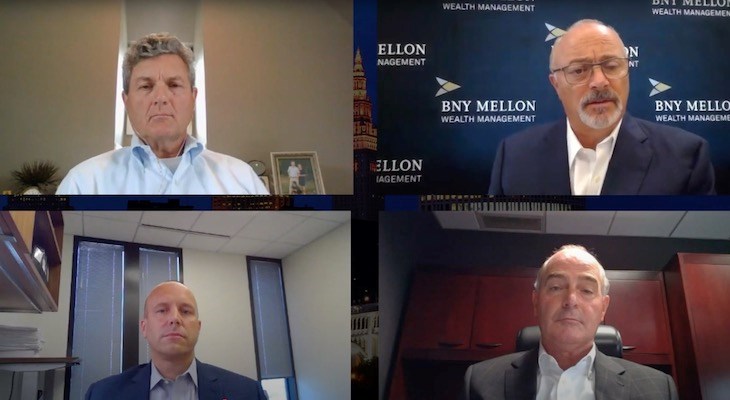Business owners might be surprised how much they can learn about their business from advisers. These meetings, says Peter Van Euwen, a partner at Baker & Hostetler, could impact whether selling is actually the best move for an owner, or if there’s another way to achieve his or her personal goals. Those adviser conversations will help owners develop the story that they’ll take to market.
Ray Dalton, founder and executive chairman of relink Medical, says he wants advisers to ask hard questions — everything that could possibly be asked during due diligence.
“We want to test the financials,” Dalton says. “We want to test revenue recognition. We want to test the validity of our contractual language. And I think it’s the advisers responsibility to just keep poking until there’s no more leaks.”
With this approach to the preparatory process, Dalton says he felt the questions he and his team were ultimately asked by buyers weren’t as tough as those the advisers asked. And that gave him confidence, which has an effect on more than just the seller.
“Confidence will have (buyers) stop asking the questions — if you can answer the first three or four correct, it takes the pressure off the throttle and puts it on the brake,” Dalton says.
Van Euwen says any buyer today is going to do a quality of earnings analysis on a business, which goes through how stable the company’s earnings are, expenses and more. So, he says, it’s much better to understand the questions you’re going to get and be proactive than to react when you get unexpected questions. It also gives the owner time to work through working capital issues and clean up financial statements so that you have the financial statements buyers are going to want.
Talking with advisers is prudent. But talking with those who have been there is also valuable.
“I recommend talking to your friends who own businesses,” Van Euwen says. “So many entrepreneurs are friends with other entrepreneurs who have been through this. Go talk to them. They’ll keep it secret and they may have some good advice for you.”
Echoing that statement, Rod Howell, CEO if Libra Industries, says the single best thing any business owner can do is put together a formal board of advisers. They can be invaluable to you in terms of how you’re going to grow and run your business on a daily basis.
But, he says, like anything else, it’s really about the quality of people you choose to surround yourself with.
“If you’re going to put together a ‘country club’ board of advisers — just nice guys that you like to hang out with — that’s exactly what you’re going to get in return,” Howell says. “You’re going to have a little bit of fun but you’re not going to get a whole lot of value.”
If you surround yourself with a great team, people who are experts in their area and can add value on a daily basis, the dividends that you’re going to get from that are immeasurable.
However, he says, in order for a board to be effective, you have to be honest and open with yourself as well as your advisers.
“If you’re going to keep your cards close to the vest and not bring them in as true partners, you’re going to limit the value that they can bring to the party,” Howell says. “On the other hand, if you’re honest and open and willing to share all of the information — the good, the bad and the ugly — you’re going to get much more in return.”
Dalton says business owners have to have advisers not just in preparation for selling the business, but for what comes after as well. That should include legal, accounting, tax and financial advisers in from the start of the exit process who can point to things owners could do or should do that would increase value.
“And within about two years of your exit, you really better have your advisers stacked,” Dalton says. “You better know that that team is sitting at the table with you, understanding what you’re looking to achieve, and really being honest with you about, Are you going to get there or are you not going to get there.’”
He says the right advisers can lead owners through very tough conversations that may contradict a line of thinking and force a change.
“We’ve surrounded ourselves with very smart people, because when you’re the CEO and you think you’re the smartest guy at the table, that’s the first mistake you’ll make,” Dalton says. “You are definitely not the smartest guy at the table.”
Catch the rest of the conversation between Dalton, Howell, Van Euwen and BNY Wealth Management Regional President Ron Ambrogio, which includes insight and advice on post-sale wealth management, that took place at the Cleveland Dealmakers Conference by clicking this link.




